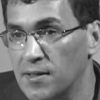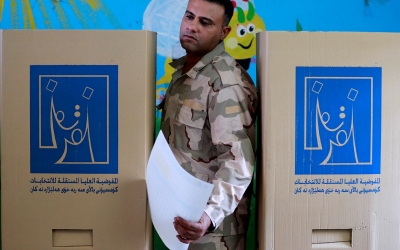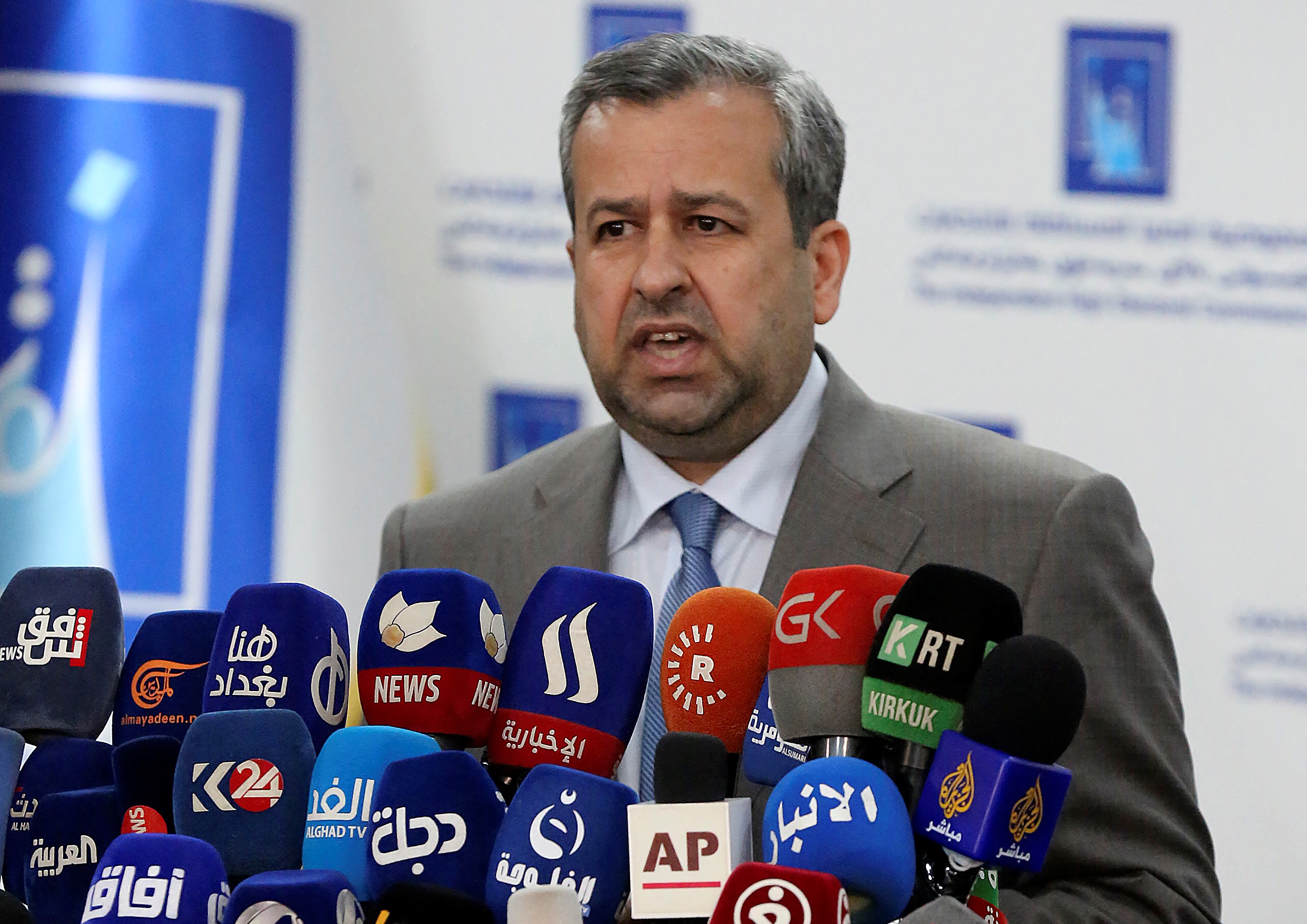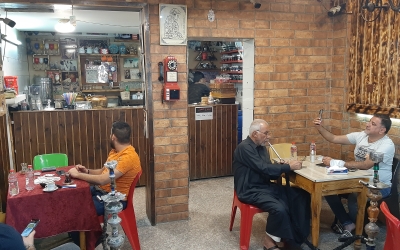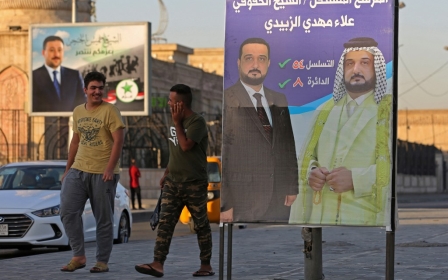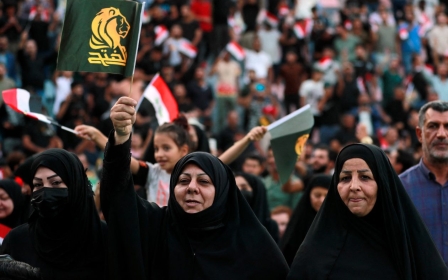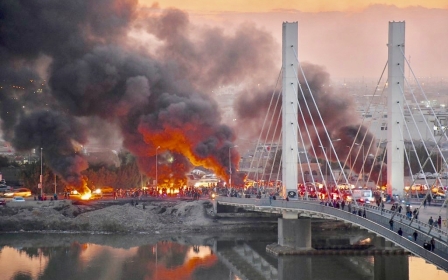Iraq elections 2021: How new intake from the uprising could reshape politics
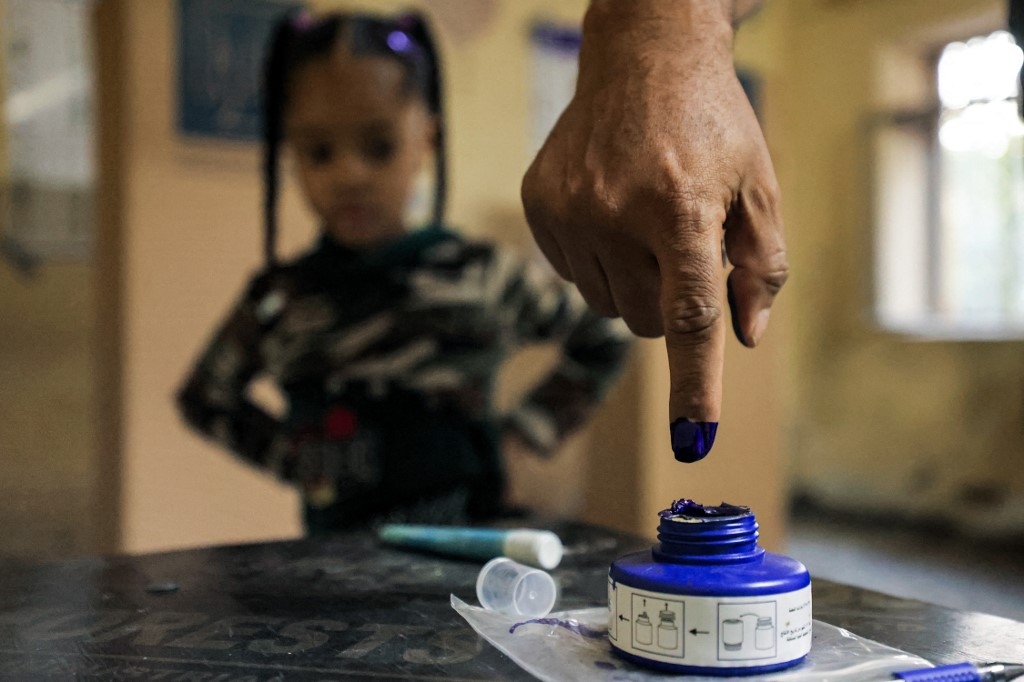
Iraq's early election held this week was free from big surprises. The expected low turnout translated into electoral gains for the ruling parties whose supporters flocked to the voting centres to make their voice heard.
The new parliament will be even more fragmented than the previous one
Iraqi leader Muqtada al-Sadr's Sadrist bloc, with a highly organised political machine and disciplined party base, turned out to be the biggest winners, netting about 73 seats according to unofficial results.
A distant second, with 43 seats, was Taqadum (Progress) led by the current parliamentary speaker, Mohammed al-Halbousi. The State of Law alliance headed by Iraq’s former prime minister, Nouri al-Maliki, came third with 37 seats.
The three top winners belong to the ruling political class. The election mainly reshuffled votes among the old players, and failed to deliver on "change", the main reason for calling for an early election in the first place.
A fragmented parliament
Based on these results, the new parliament will be even more fragmented than the previous one, allowing the "old politics" of fractious power-sharing to dominate again.
This could result in a difficult, and possibly lengthy, government-formation process involving the much-criticised "apportioning of cabinet posts" based on the parliamentary weight of each political bloc where party interests prevail over national interests.
Second, a fragmented parliament will translate into an ineffective and frustrating decision-making process that has to take into account widely different, sometimes irreconcilable, interests of many political stakeholders.
Because of the low turnout, Sunday’s election failed to address the main problem of regime legitimacy, seriously undermined among ordinary Iraqis.
Significant participation in the vote was important to restore the street legitimacy of the post-2003 political order, largely discredited in the eyes of the majority of Iraqis who felt angry at this order’s narrow partisanship and corruption.
The early election, held under a better and more accommodating electoral law not favouring big parties as the old law did, was the main "concession" the political class was willing to make to bring in the disaffected Iraqis after six-month mass protest movement that won nationwide sympathy.
The Independent Higher Electoral Commission (IHEC), Iraq’s body responsible for organising elections, announced that 41 percent - that is, nine million out of 22 million registered voters - took part in Sunday’s election, a figure hotly contested by analysts and boycotters.
Some political forces accused the IHEC of inflating the numbers, arguing that the true figure should be 34 percent out of roughly 27 million eligible voters, not discounting the five million Iraqis who refused to register to vote. Some even contest that nine million actually voted, given the mostly empty streets in much of the nation during election day.
Key takeaways
There are three takeaways from this election. First is the transparency of the vote itself. Technical improvements in voting machines, further computerisation of the voting process, better made and well-protected voting cards, and the quick announcement of results (within 24 hours after the vote), make fraud more unlikely.
Despite the negative reaction to the result from the pro-Iran Fatah coalition, the new voting measures to increase transparency should go some way in restoring the credibility of elections in the eyes of many sceptical Iraqis.
Second is the pumping of fresh blood into the Iraqi body politic. It is the entry of "outsiders" in the political game through a popular mandate, not through the usual party clientelism.
Fatah's poor electoral showing will likely translate into a more serious effort by the state to rein in the pro-Iran armed groups
Despite the odds stacked against them, such as the scarcity of resources, little campaigning experience, and a popular boycott that hurt their chances, new parties born out of the protest movement and pro-protest independent candidates managed to win about 35 seats.
If these winners can form a coherent parliamentary opposition bloc that does not get dragged into corrupt deals and shady alliances, politics can open up and evolve in positive ways related to people’s concerns away from the exclusivist grip of the selfish old parties.
Third is the electoral demise of the pro-Iran forces. The religiously conservative Fatah bloc, a political alliance of Shia militias and small parties that champion the cause of the "axis of resistance" and anti-Americanism, won only 14 seats compared to 47 seats in the 2018 election.
In response, Fatah leader Hadi al-Ameri denounced the result as "fabricated", while one militia faction appeared to threaten violent action in response. The reality is that the alliance lost much of its previous heroic reputation among poor Shias, as the "slayer of Islamic State" and claims to be clean "new politicians".
Fatah's poor electoral showing will likely translate into a more serious effort by the state to rein in the pro-Iran armed groups working within or outside the official Popular Mobilisation Forces (PMFs). Muqtada al-Sadr’s victory speech following the announcement of the unofficial election results was clear on this point.
Revolution or parliament
After the euphoria of the winners and the disappointment of the losers dissipate, the important long-term question is one for the protest movement to address. They must choose between the revolutionary means of forcing change through street action, currently a dominant appeal among protesters, or investing in the current institutional tools of party-formation, elections, and parliamentary methods.
Much of the boycotters’ argument against participating in the vote was built on a commonly accepted assumption that a transparent vote is impossible and, consequently, protesters and their agenda will never make it into parliament. Hence, massive and decisive street protest is the only way forward.
The answer to this question lies in how the scores of new pro-protest MPs will organise in parliament to distance themselves from the bad practices of the ruling parties over the past 16 years.
If they offer a positive model in parliamentary work that convinces young, angry protesters to channel their energy into institutional politics away from revolutionary scenarios of regime-change through the power of the street, Sunday's election will have been very much worth it despite its many shortcomings.
The views expressed in this article belong to the author and do not necessarily reflect the editorial policy of Middle East Eye
This article is available in French on Middle East Eye French edition.
Middle East Eye propose une couverture et une analyse indépendantes et incomparables du Moyen-Orient, de l’Afrique du Nord et d’autres régions du monde. Pour en savoir plus sur la reprise de ce contenu et les frais qui s’appliquent, veuillez remplir ce formulaire [en anglais]. Pour en savoir plus sur MEE, cliquez ici [en anglais].


